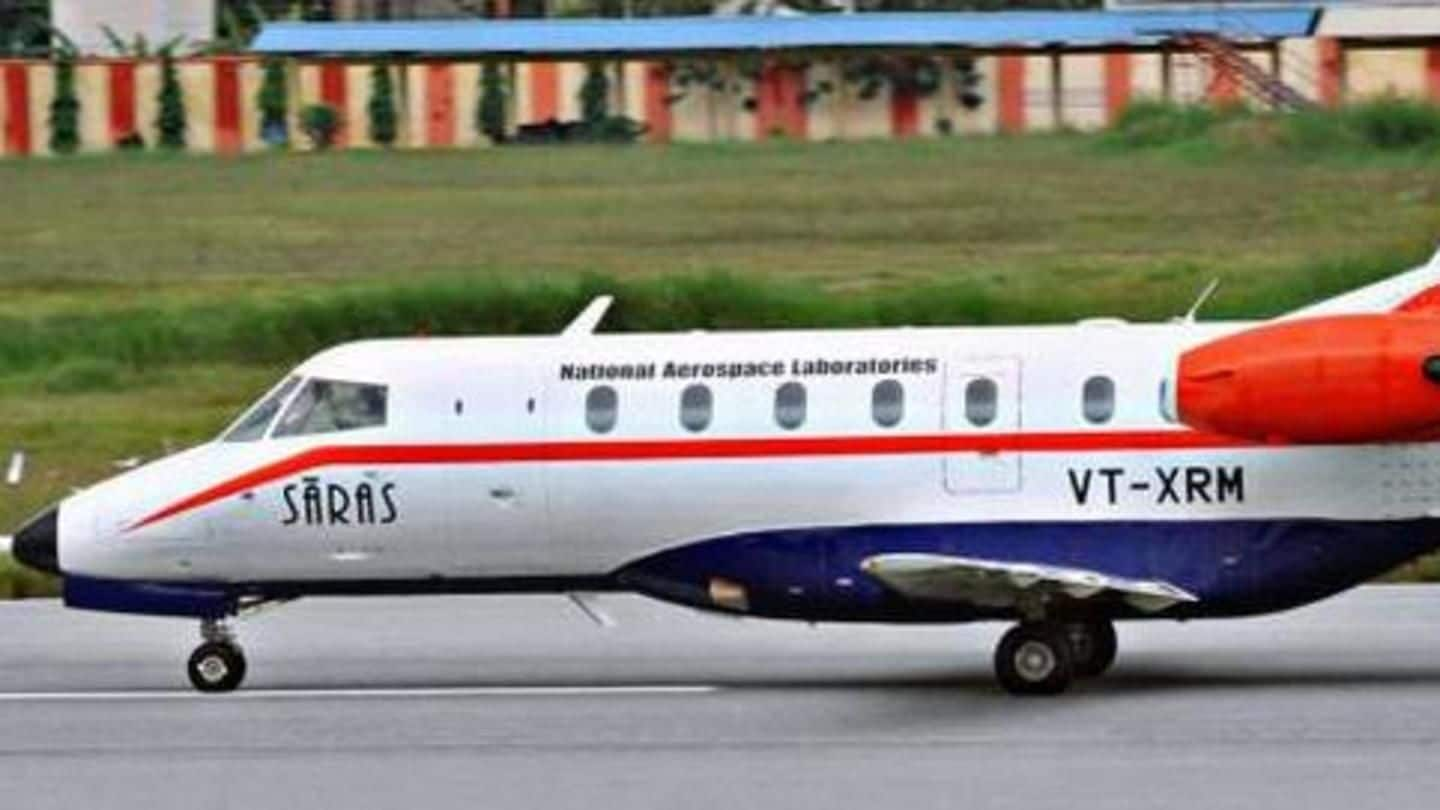
Meet 'Saras', India's first indigenously made passenger plane
What's the story
Indian scientists and Indian Air Force have once again committed to the development and testing of the country's first passenger and transport plane, Saras, a 19-seater turboprop aircraft. The plane, indigenously designed by the National Aerospace Laboratories (NAL) in Bengaluru, is being tested by the Indian Air Force. Here's more about the Project Saras.
2018 stuff
'Saras' is far superior in technology than its competitors
According to NAL, currently available aircrafts such as the Dornier-228 and Embraer EMB 110, use 1970s technology. NAL said the upgraded Saras Mk2, unlike its competitors, has considerable drag and weight reduction with unique features like short landing and take-off distance, high cruise speed, pressurized cabin, lower fuel consumption, low cabin noise. Further, it is operable from high and hot airfield as well.
Quote
The re-designed Saras is a good plane, said IAF
"The Saras we have flown now is in fact better than the earlier prototype. There have been several design improvements which NAL as the designer has incorporated in this aircraft. There is no doubt it is good plane," said AVM Sandeep Singh, Commandant, ASTE, Bengaluru.
Made in India
Hi-tech Saras is also cheaper than its competitors
Saras, expected to cost Rs. 45 crore, is still cheaper than a Dornier plane which currently costs Rs. 60 crore. Initially, the production would cost Rs. 1,000 crore before dedicated production starts in 2022. For the military version of Saras, Hindustan Aeronautics Ltd. has been identified as the production agency, while the production of the passenger version will be given to a private agency.
Quote
Saras can be used across transport services in India
"Saras Mk 2 will be ideal for commuter connectivity under the Udaan scheme for a variety of applications like air taxi, aerial search, survey, executive transport, disaster management, border patrol, coast guard, ambulance and other community services," said Union Science Minister Harsh Vardhan.
Details
About the Saras project
The Saras project, resurrected in 2016, has been in the making for the last 18 years after getting stalled due to a crash in 2009 which had killed two IAF pilots. The indigenously built 7,000-kg plane has already made two successful test flights this year and could help fulfil PM Modi's vision of making "people who wear hawai chappals" travel in a "hawai jahaz".